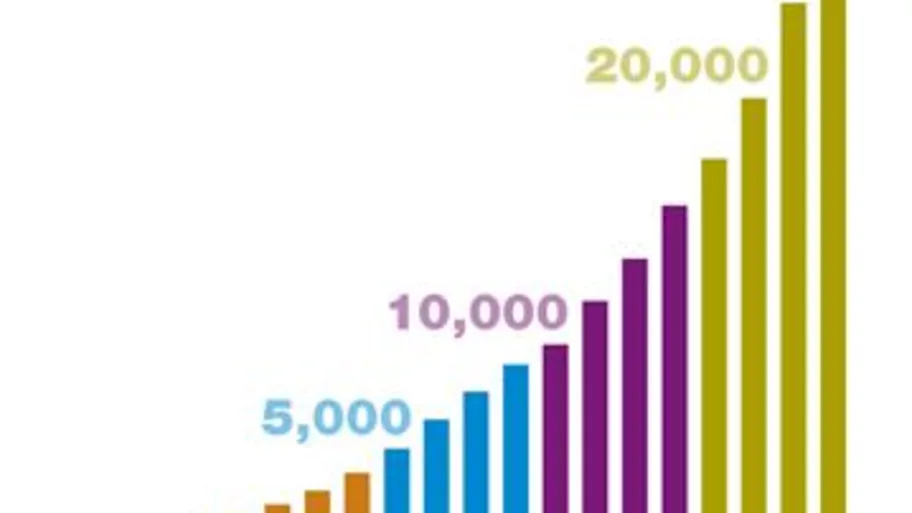
- Science news
- Top news
- Frontiers publishes its 50,000th article
Frontiers publishes its 50,000th article
Frontiers has reached a major milestone and published its 50,000th article.
Frontiers was born digital as an open-access publisher in 2007. It has grown to become the home to 57 journals covering sciences, technology and the humanities that span across 440 specialty sections. More than 150’000 authors have published with Frontiers journals. Community driven, our editorial board is the largest in the world, consisting of over 63,000 researchers from the most prestigious universities.
Frontiers journals have risen to become some of the most-citied open-access journals in their fields. We have also pioneered the collaborative peer-review, crowd-sourced metrics and created our own unique in-house Digital Editorial Office to ensure quality at scale.
Pioneering the Collaborative Peer Review
Our Collaborative Peer Review is the first of its kind and mandates that all reviews are impact neutral, meaning we publish all research that is correct. Each manuscript undergoes rigorous and constructive feedback from expert reviewers who have direct interactions with the authors. The reviewers and editors are also acknowledged on the published articles. This combination of transparency, collaboration and applying an impact neutral philosophy has become a powerful model for publishing quality academic papers at scale.
Freeing the flow of knowledge and enabling correct and valid science to be published rapidly and at high quality is part of our mission. Rejections of manuscripts that do not have irreparable errors, simply because they are deemed to be less impactful than others cost the academic community time and money. In addition, analysis shows that selecting for impact doesn’t always bring the results the publishers want; rather it slows down the sharing of ideas massively.
Accountability through Editorial Independence
Our collaborative peer review is based on trust and accountability of our editorial board members. Chief Editors are carefully selected as representing leaders in their respective community, who then work with us to bring other experts on board as Associate and Review Editors. Those who endorse a paper for publication take responsibility for the peer review and are transparently named on the final publication itself. The decision lies in the hands of the editorial board.
To help give our thousands of editors editorial independence and the freedom to act in the review process any time, our in-house IT team built a Digital Editorial Office designed from the feedback we received from the editor on what they needed to help them make decisions and supervise the review process more efficiently. We developed a real-time Interactive Review Forum to implement its Collaborative Review philosophy, which is geared towards fair, constructive and virtually instantaneous interactions between authors, reviewers and editors.
Achieving Quality at Scale
Traditionally, quality in scholarly journals is ensured by selecting just a few papers judged to be impactful and rejecting the vast majority of valid manuscripts. At Frontiers, we publish all valid science and ensure high quality articles at high volumes by pairing our custom-made technology with our expert editorial boards.
And our strategy works: between the 2014 and 2015 Impact Factor year, Frontiers has had an overall 43% volume increase and has remained in 12% top layer for Impact Factor. It also succeeded to increase Impact Factors for 12 of the 16 journals indexed in 2014, and increased the average Impact Factor by 7% (see details).
It is due to the dedication of our editors and reviewers who have diligently worked with the authors to ensure their paper is the best it can be, that many of these journals have generated the highest number of citations in their categories. This proves that quality at scale is achievable given the right combination of technological assistance, expert editorial boards and editorial support.
Empowering Researchers with Digital Innovation
Our Digital Editorial Office is only one of the many innovations we’ve pioneered over the years to help empower academic communities. Our award-winning IT platform was built in-house and from scratch to ensure quality control, transparency and efficiency. Frontiers also developed Article Level Metrics in 2008 to allow instantaneous tracking of readership of an article, and pioneered Author Impact Metrics through our unique online platform, Loop.
We are constantly improving our in-house systems, and soon will be looking into the possibilities of data mining and text mining for our articles. Frontiers remains at the forefront of modern academic publishing.
Today and the Future
Frontiers continues to grow and our articles have been:
Viewed and downloaded over 200 million times
Cited in Scopus 242,000 times
Tweeted 240,000 times
Bookmarked by Mendeley readers 636,000 times
Mentioned in the media over 4,800 times (in just the last 3 months)
These stats are just a few we achieved with the help of our communities. Already over 30% of the world-wide peer-reviewed papers are now published in some form of Open Access, and with EU research ministers committed to make open access to scientific publications the default option by 2020, and with universities such as Harvard pushing for Open Access conversion, we know these numbers will continue to grow for the benefit of research communities, societies and economies at large.
To our editorial board, our reviewers and the over 150,000 authors who put their trust in us, we send out a warm “thank you and congratulations” for achieving this milestone.





